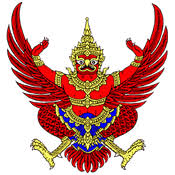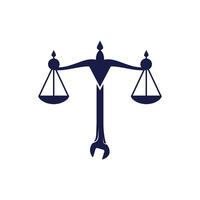Chapter 1 General Provisions
About TMA Group
TMA Group is a professional company focusing on local recruitment and corporate consulting in Thailand, dedicated to providing one-stop services including recruitment, financial management, tax disposal, legal consulting, personnel management, etc. for enterprises and individuals. If you need more advice on investment in Thailand, please feel free to contact us.
Chapter 1
General Provisions
Section 7. A claim for or the acquisition of a right or benefit under this Act shall not deprive an Employee of a right or benefit to which he or she is otherwise entitled under other laws.
Section 8.The Minister shall have the power to appoint a competent official whose qualification is not lower than a Bachelor’s degree in law to have the power to institute a prosecution or defend a labour suit for an Employee or a statutory heir of a deceased Employee, and, upon notification to the court by the Minister of Labour and Social Welfare, to have the power to continue any proceeding to their completion.
Section 9. In case of the Employer shall not pay back the security deposit in money under Section 10 paragraph two, nor pay wages of termination of the employment’s contract without prior notice under Section 17/1, nor pay wages, overtimes pay, holiday pay, holiday overtime pay and other payment which the employer is obliged to according to this Act in due date under Section 70, nor pay wages during suspension of business under Section 75, nor statutory severance pay under Section 118, Special Severance Pay in lieu of advance notice under Section 120, 120/1, 121 and 122, the Employer shall pay interest to the Employees on the default amount at fifteen percent per year.
Whereas an Employer intentionally fails to pay back or make a payment under paragraph one without reasonable cause, after the lapse of seven days from the due date of restitution or payment, the Employer shall pay to the Employee additional fifteen per cent of the amount due every for even days that the amount remains outstanding.
Whereas an Employer is ready to return or to pay the money under paragraph one and paragraph two and remits the money to the Director-General or to a person entrusted by the Director-General in order to pay to the Employee, the Employer shall not pay any interest or additional money as from the date of remission of such money.
Section 10. Under Section 51 paragraph one, an Employer shall be prohibited from demanding or receiving from an Employee a security deposit for work or a security deposit for damage to work regardless of money, other property or suretyship by person , unless the nature or conditions of work require the Employee be responsible for money or property belonging to the Employer, which may cause damage to the Employer. The nature or conditions of work which the Employer is allowed to demand or receive a security deposit from the Employee, as well as any type of the security, values of the security and means of keeping shall be in accordance with the rules and procedures as prescribed in the Notification by the Minister.
Where the Employer demands or receives the security deposit or makes a guarantee contract with the employee to compensate for damage done by the Employee, when an employment is terminated by the Employer or the resignation is made by the Employee or the guarantee contract is expired, the Employer shall pay back the security thereof plus interests, if any, to the Employee within seven days from the date of termination of employment, or from the date of resignation, or from the expiry date of the guarantee contract, as the case maybe.
Section 11. A debt owing by an Employer to be paid under this Act or money to be compensated by the Employer to the Employee Welfare Fund under Section 135, an employee or the Department of Labour Protection and Welfare, as the case may be, shall have a preferential right over all properties of the Employer who is a debtor in the same rank as the preferential rights of taxes and duties under the Civil and Commercial Code.”
Section 11/1 Where an entrepreneur has entrusted any individual to recruit persons to work, which is not a business of employment services, and such work is any part of manufacturing process or business operation under the entrepreneur’s responsibility, and regardless of whether such person is the supervisor or takes the responsibility for paying wages to the persons who perform work, the entrepreneur shall be deemed as an Employer of such workers.
The entrepreneur shall provide contract employees, who perform work in the same manner as employees under the employment contract, to enjoy fair benefits and welfare without discrimination.”
Section 12. Whereas an Employer is a Sub-contractor, all the Subcontractors before him, if any, including the First Contractor, shall be jointly liable with the Sub-contractor who is the Employer for payment of Wages, Overtime Pay, Holiday Pay, Holiday Overtime Pay, Severance Pay, Special Severance Pay, Contributions, Supplementary Contributions or additional money.
The first Contractor or Sub-contractors under paragraph one shall have the right to take recourse for the money paid under paragraph one from the Subcontractor who is the Employer.
Section 13. Where there is a change of employer or in case that the Employer is a juristic person and has registered, changed, transferred or merged with any juristic person and it causes any employee to become an employee of a new employer, therefore the Employer shall obtain consent of the Employee who will be transferred. The new Employer shall assume all the rights and responsibilities owed to the transferred employee by the previous employer.
Section 14. An Employershall treat an Employee properly in accordance with the rights and duties prescribed under the Civil and Commercial Code unless otherwise prescribed in this Act.
Section 14/1. A contract of employment between an Employer and an employee, work rule, regulation or order of an Employer result in the Employer being in exploitation of the Employee, the Court shall have a power to order such contract of employment, work rule, regulation or order being enforceable only to the extent as it is fair and reasonable.
Section 15.An Employer shall treat male and female Employees equally in employment unless the description or nature of work prevents such treatment.
Section16. An Employer, a chief, a supervisor, or a work inspector shall be prohibited from committing sexual abuse, harassment or nuisance against an employee.
Section 17. A contract of employment shall expire upon the completion of the period specified in the contract of employment with no requirement for advance notice.
Where the period is not specified in the contract of employment, an Employer or an employee may terminate the contract by giving advance notice in writing to the other party at or before any due date of wage payment in order to take effect on the following due date of wage payment, with no requirement for advance notice of more than three months. In addition, a probationary contract shall also be deemed as an indefinite period contract of employment.
Upon the notice of contract of employment under paragraph two, the Employer may pay wages in an amount to be paid up to the due time of termination of the contract of employment as specified in the notice and may dismiss the Employee immediately.
The advance notice under this Section shall not apply to the termination of employment under Section 119 of this Act and Section 583 of the Civil and Commercial Code.
Section 17/1. In case of the Employer terminates the contract of employment without getting advance notice to the Employee under Section 17paragraph two, the Employer shall pay the Employee an amount equal to the wage that the employee should receive from the date of termination until the effective date of the termination of the employment contract under Section 17paragraph two, the payment shall be paid to the Employee on the termination date.
Section 18.Where this Act prescribes that an Employer is required to notify any act or submit any document to the Director-General or any person entrusted by the Director- General or the Labour Inspector, the Employer shall notify or submit it in person or by mail, telephone, facsimile, electronic communication or any other kinds of information technology in accordance with the rules and procedures as prescribed in the Notifications by the Director-General.
Section 19.For the purpose of calculating the period of employment of an Employee under this Act, Holidays, leave, days off permitted by the Employer for the benefit of the Employee, and days off ordered by the Employer for the benefit of the Employer shall also be counted in the period of employment of the Employee.
Section 20. Whereas an Employee has not worked continuously on account of an intention of the Employer to deprive such Employee of any right under this Act, irrespective of which duty assigned by the Employer to the Employee and of how lengthy a lapse between each period of employment is, each period of employment shall be counted together for the purpose of the acquisition of any right by such Employee.
Section 21. Whereas this Act requires that an Employer is required to carry out any act for which expenses are incurred, the Employer shall bear all expenses for such act.
Section 22. Agriculture, sea fishing, loading or unloading of marine cargoes, homework, transport work and other work as provided in the Royal Decree may be prescribed in the Ministerial Regulations for the protection of labour differently from the protection under this Act.
TMA Consulting Management has been paying attention to the updating of information through newsletters for many years, but we do not assume any responsibility for the completeness, correctness or quality of the information provided. No information contained in this article can replace the personal consultation provided by a qualified lawyer. Therefore, we do not assume any liability for damages caused by the use or non-use of any information in this article (including any kind of incomplete or incorrect information that may exist), unless it is caused intentionally or by gross negligence.











